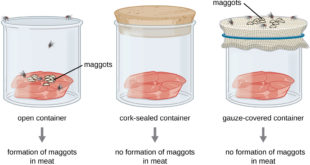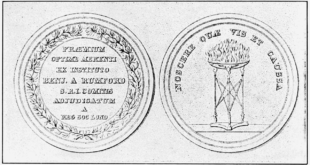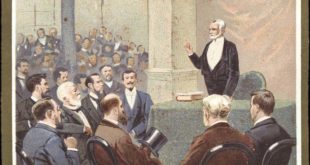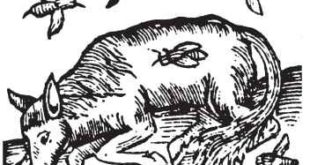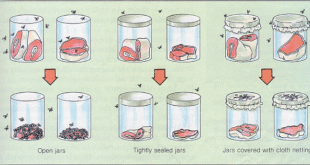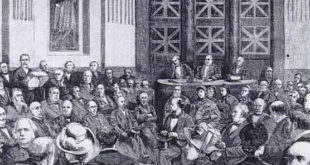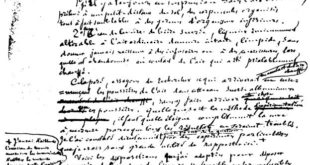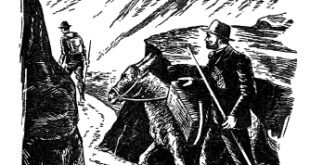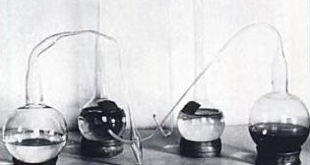Learning Objectives Explain the theory of spontaneous generation and why people once accepted it as an explanation for the existence of certain types of organisms Explain how certain individuals (van Helmont, Redi, Needham, Spallanzani, and Pasteur) tried to prove or disprove spontaneous generation Part 1 Barbara is a 19-year-old college student living in the dormitory. In January, she came down …
Read More »Spontaneous Generation
The Laws of Life: Louis Pasteur
This article was originally published in The Laws of Life, Volume 28, page 148 LOUIS PASTEUR, the noted French chemist, whose portrait we give in the present number, was born at Dole, December 27th, 1822. At an early age he evinced an extraoridnary intellectual capacity and determined to devote himself to original science. In 1847 he took his degree and …
Read More »The Spontaneous Generation Dispute
This article was originally published in the Pharmaceutical Journal and Transactions, March 17, 1877, p. 758 The question whether under any known conditions the spontaneous generation of living beings can take place has been the subject of so many diametrically opposed assertions during the past few years, that the discussion seemed fast drifting into the ridiculous. As, however, an attempt …
Read More »Bastian and Pasteur on Spontaneous Generation
Originally published in The American Naturalist, Vol. 10, No. 12, Dec. 1876, pp. 730-734 by Henry J. Slack In the number of Comptes rendus for July 10, 1876, is a paper by Dr. Bastian, On the Influence of Physico-Chemical Forces in the Phenomenon of Fermentation, intended to demonstrate, in opposition to the theory of atmospheric germs, that certain organic liquids …
Read More »The Question of Spontaneous Generation
From Louis Pasteur: His Life and Labours by René Vallery-Radot, 1885 ‘All dry bodies,’ said Aristotle, ‘which become damp, and all damp bodies which are dried, engender animal life.’ Bees, according to Virgil, are produced from the corrupted entrails of a young bull. At the time of Louis XIV, we were hardly more advanced. A celebrated alchemist doctor, Van Helmont, …
Read More »Spontaneous Generation and Pasteur’s Experiments
In the nineteenth century, people believed that organisms could arise spontaneously from their environment, without the presence of any preexisting organisms. After a nutrient broth is sterilized by boiling, and then exposed to air for a few days, a sample can be removed from the flask and transferred to a plate containing a solid medium. Within a few hours, the …
Read More »On Spontaneous Generation
An address delivered by Louis Pasteur at the “Sorbonne Scientific Soirée” of April 7, 18641 English translation commissioned 1993 by Bruno Latour,© Alex Levine, all rights reserved. Gentlemen! A number of imposing problems now have our best minds in thrall. These include questions regarding the unity or plurality of the races of Man, whether his creation ought to be dated …
Read More »Spontaneous Generation
The mystery of life has puzzled and confounded humans since the first human began to contemplate his world. The religions of ancient societies were built around the seasons, the sun and the renewal of life as these were so clearly tied to survival; both of the human species through birth and death, and of the individual in the attainment of …
Read More »Pasteur, Pouchet and Heterogenesis
Louis Pasteur delivered a heavy blow to the theory of “spontaneous generation” when his famous experiment displayed that fermentation could be prevented even when a fermentable substance was exposed to the atmosphere. However, the debate continued, the science at hand matured and the discussion became much more involved. Some of the chimerical conceptions of creating mice and scorpions from dirty …
Read More »Louis Pasteur and the History of Spontaneous Generation
In the late 19th century, Louis Pasteur would find himself at the center of the spontaneous generation debate. However, it was only after centuries of conjecture, assumptions and the earlier scientific discoveries of others that Pasteur had the ability to put forth the crucial experiment that would uproot the theory of spontaneous generation. From the time of the ancient Greeks …
Read More » Pasteur Brewing Louis Pasteur – Science, Health, and Brewing
Pasteur Brewing Louis Pasteur – Science, Health, and Brewing 